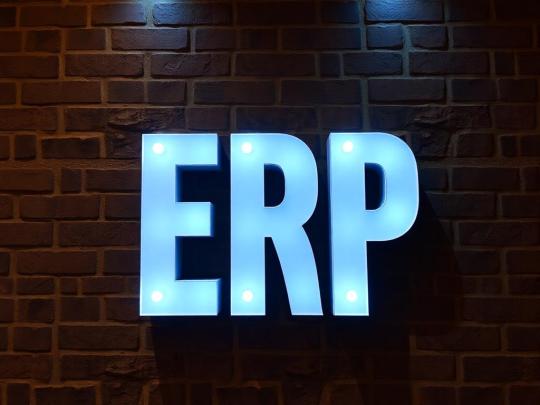#IndustrialERP
Explore tagged Tumblr posts
Text
Best ERP for Ethanol Manufacturing Industry: Features & Benefits
Introduction to ERP for Ethanol Manufacturing Industry
The ethanol manufacturing industry is a rapidly growing sector that requires robust management solutions to handle complex operations. From raw material procurement to production, compliance, and distribution, an Enterprise Resource Planning (ERP) system plays a crucial role in ensuring efficiency, cost reduction, and regulatory adherence.

Why the Ethanol Industry Needs ERP Software
The ethanol manufacturing industry faces several operational challenges that can be effectively managed with an ERP system:
Raw Material Management: Tracking and managing corn, sugarcane, or other biomass inputs.
Production Process Optimization: Ensuring efficiency in fermentation and distillation.
Quality Control & Compliance: Meeting environmental and safety regulations.
Supply Chain & Inventory Management: Managing logistics and stock levels efficiently.
Financial & Cost Control: Optimizing production costs and improving profitability.
Key Features of ERP for Ethanol Manufacturing Industry
When selecting an ERP solution for the ethanol industry, the following features are essential:
1. Raw Material & Inventory Management
Real-time inventory tracking for raw materials and finished goods.
Automated procurement to optimize supply chain efficiency.
Stock forecasting tools to prevent shortages and overstocking.
2. Production Planning & Process Optimization
Batch-wise production tracking for precise monitoring.
Automated scheduling to optimize resource utilization.
Integration with IoT sensors for real-time process control.
3. Quality Control & Compliance Management
Automated quality checks at multiple production stages.
Regulatory compliance tracking (e.g., environmental and safety standards).
Traceability & audit reporting for legal adherence.
4. Supply Chain & Distribution Management
Seamless integration with suppliers and transporters.
Automated logistics tracking for efficient distribution.
Fleet management tools for transportation efficiency.
5. Finance & Accounting Management
Automated billing & invoicing.
Cost analysis tools to optimize expenditures.
Tax compliance & financial reporting.
6. Sales & Customer Relationship Management (CRM)
Order processing & contract management.
Sales forecasting & demand planning.
Customer feedback tracking for continuous improvement.
Benefits of Implementing ERP for Ethanol Industry
Implementing an ERP system in ethanol manufacturing offers multiple advantages:
Improved Operational Efficiency: Reduces manual work and enhances automation.
Cost Savings: Optimizes resources and minimizes waste.
Regulatory Compliance: Ensures adherence to industry standards.
Data-Driven Decision Making: Provides real-time insights for strategic planning.
Scalability: Supports business expansion and technological upgrades.
How to Choose the Best ERP for Ethanol Manufacturing
When selecting an ERP system for ethanol production, consider:
Customization: Is the ERP tailored for ethanol manufacturing needs?
Integration Capabilities: Can it connect with existing systems?
User-Friendliness: Does it require extensive training?
Scalability: Can it support future business growth?
Cost & ROI: Is it cost-effective and does it offer long-term benefits?
Top ERP Software for Ethanol Manufacturing
Here are some of the best ERP solutions tailored for the ethanol industry:
SAP S/4HANA – AI-driven ERP for process automation.
Oracle NetSuite – Cloud-based ERP with real-time analytics.
Microsoft Dynamics 365 – Scalable and flexible for manufacturing sectors.
Infor CloudSuite Industrial – Designed for process industries like ethanol production.
Epicor ERP – Advanced supply chain management capabilities.
Conclusion: Why Your Ethanol Business Needs ERP Software
Choosing the best ERP for ethanol manufacturing is crucial for optimizing production, compliance, and profitability. A well-integrated ERP system enhances efficiency, automates workflows, and ensures regulatory compliance, making it an essential tool for growth.
#ERPforEthanolIndustry#EthanolManufacturing#ManufacturingERP#SupplyChainManagement#EthanolProduction#EnterpriseResourcePlanning#ProcessAutomation#IndustrialERP#ERPSoftware#qualitycontrol
1 note
·
View note
Text

ERP manufacturing software enhances production efficiency, real-time inventory management, and supply chain optimization. It automates workflow processes, improves quality control, and ensures regulatory compliance. With data-driven insights, businesses can reduce costs, streamline logistics, and improve profitability. Implementing an ERP system enables seamless operations and long-term business growth in the manufacturing industry.
#ERPforManufacturing#ManufacturingERPSoftware#ProductionEfficiency#SupplyChainOptimization#InventoryManagement#ManufacturingAutomation#SmartManufacturing#QualityControlERP#BusinessGrowth#IndustrialERP#ProcessOptimization#DigitalTransformation#ManufacturingIndustry#WorkflowAutomation#CostReduction
0 notes
Text
Why Manufacturing Industries Need ERP Systems for Material and Production Planning?

Enhancing Material and Production Planning with ERP Systems in Manufacturing
Manufacturing industries operate in a dynamic environment where efficiency and precision are paramount. To meet these demands, adopting a robust manufacturing ERP system is crucial for effective material and production planning.
An ERP system for manufacturing industry provides an integrated solution that connects all aspects of the business, from procurement and inventory management to production and distribution. This comprehensive approach ensures seamless operations and improved decision-making. Tools like ERPNext manufacturing are tailored to address the unique challenges of production-based industries, making them a top choice for manufacturers.
Manufacturing enterprise resource planning systems play a vital role in resource allocation, scheduling, and real-time tracking. By utilizing industrial ERP solutions, manufacturers gain visibility into their operations, enabling them to forecast demand accurately and avoid bottlenecks. These systems are particularly beneficial for optimizing supply chains and reducing material wastage.
Small businesses can also leverage the power of manufacturing software for small business to compete with larger players. Solutions such as business manufacturing software and manufacturing ERP software are designed to streamline operations and enhance productivity for small-scale manufacturers. The implementation of manufacturing enterprise resource planning software allows these businesses to automate routine tasks, manage resources effectively, and maintain high-quality production standards.
With a dedicated manufacturing resource planning system, manufacturers can ensure that raw materials are always available when needed, preventing costly production delays. The integration of production ERP software allows businesses to track each stage of the production process, ensuring timely delivery and quality assurance. These tools are essential for meeting customer expectations and staying ahead in the market.
Implementing ERP software for manufacturing industry also fosters compliance with industry regulations and minimizes operational risks. Whether for large enterprises or smaller ventures, a robust ERP software manufacturing industry solution provides the scalability and flexibility needed to adapt to changing market demands.
#ManufacturingERP#ERPSystem#ProductionPlanning#ERPNextManufacturing#IndustrialERP#ManufacturingSoftware#ERPForManufacturing#BusinessManufacturingSoftware#EnterpriseResourcePlanning#MaterialPlanning#SmallBusinessSolutions#ManufacturingEfficiency#ERPImplementation#SmartManufacturing#DigitalTransformation
0 notes